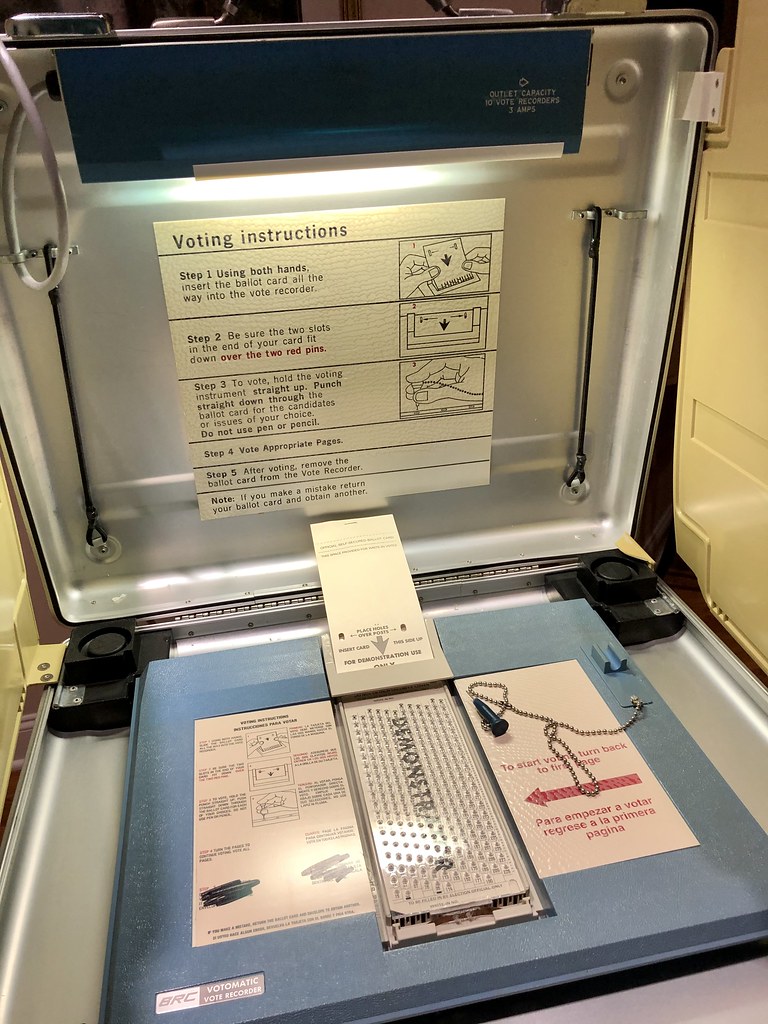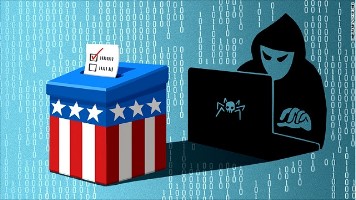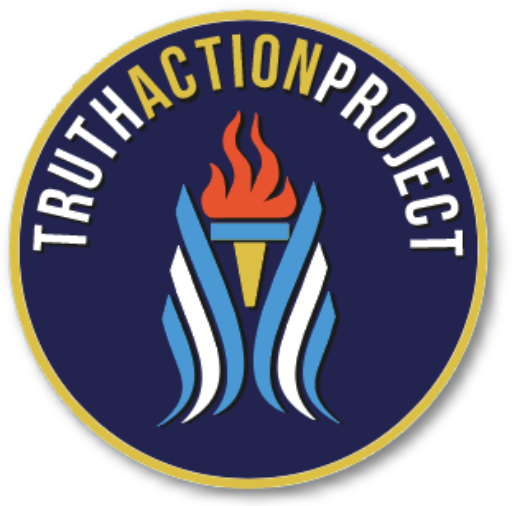Are Our Elections Fair or Fraudulent?
Are Our Elections Fair or Fraudulent?
All Americans Should Insist on Verifiable Election Integrity
The Truth Action Project has taken no position on allegations of election fraud in the 2020 or any previous U.S. election. We are committed to remaining neutral on partisan politics. But TAP is about respectful dialogue, and we have seen little respectful dialogue on this issue in the legacy media.
TAP is non-partisan, and many of the arguments that were advanced by Republicans following the 2020 election (and by expert witnesses) were identical to those advanced by Democrats, in the U.S. Senate and elsewhere, in earlier years (see video). So the issue is a non-partisan one—although lately it has not always been recognized as such.
TAP is fundamentally concerned about the justifiable mistrust of government and media engendered by the many false narratives on other issues we care about, and close to half the American public is mistrustful of the fairness of our elections.
Even a cursory investigation of the criticisms raised over the past two years reveals some theories and evidence that have scarcely been heard by those who depend entirely on mainstream sources. The fairness of elections turns out to depend not just on how the votes are counted but on such factors as:
- How the voter rolls are maintained and managed,
- How absentee ballots are mailed out, returned, and counted,
- How philanthropic efforts to encourage voter participation may not have been adequately overseen in pivotal battleground counties, resulting in ballot harvesting, and,
- How much faith can be placed in the few companies that not only sell electronic voting systems but also play an important role in the voting process?

Recently, there have been remarkable grassroots initiatives by active, dedicated, intelligent, and well-educated citizens—such as those devoted to canvassing neighborhoods to ascertain how many people on the voter rolls reside at the same address. Their work demands respectful consideration.
“2000 Mules,” a documentary film created by Dinesh D’Souza and drawing on research provided by the election integrity group True the Vote, offers two types of evidence of electoral fraud: geotracking and video. The geotracking evidence, based on a database of 10 trillion cell phone pings, exposed an elaborate network of paid professional operatives delivering large, seemingly illegal batches of votes to mail-in drop-boxes in the five key states where the election was decided. Video evidence, obtained from official surveillance cameras installed by the states themselves, supported the geotracking evidence.
Evaluating such claims is complicated by the loss of trust in the institutions that we ought to be able to rely on. The Department of Homeland Security was tasked, at the end of the Obama administration, with overseeing the sanctity of the vote. In the light of what we have learned about the individual and collective influence of bureaucracies such as the FBI (c.f. the “Twitter Files” (documenting censorship of Twitter, Facebook, and Google searches by government bureaucrats), the NSA (the Snowden revelations), and the CIA), much depends upon whether the States abdicate their constitutional responsibility in this area.
We therefore deem it appropriate to present on this website the views of those who have studied the integrity of recent elections—not just the most recent one—and have advanced cogent reasons for their skepticism. TAP seeks Partners active at the grassroots level in the field of electoral reform and looks forward to working with them in developing content on this subject in this space and in webinars to promote respectful dialogue, consensus, and action.
| Part Of Washington Journal
J. Alex Halderman on Election Systems and Vulnerabilities
J. Alex Halderman, a University of Michigan computer science and engineering professor, talked about voting machine security.
Professor J. Alex Halderman is an expert witness on election integrity who was called to testify in Congress by Democrats in 2019 and by conservatives in legal appeals following the 2020 election. His expertise is in election systems and electronic voting machines, which he sees as vulnerable to hacking. He also notes as a problem the failure to be able to keep the voter rolls (the lists of eligible voters) accurate—because Americans are mobile and the technology for updating lists has become antiquated.
MATH WARS: We have the plans to the DOMINION Death Star. [The Professor’s Record with David K. Clements Rumble Channel]
This video is a conversation moderated by attorney David Clements, a crusader against electoral fraud, and three experts with backgrounds in computer engineering and data analysis—Edward Solomon, Dr. Douglas Frank, and Draza Smith—a computer scientist formerly with Sandia National Laboratories.
The three experts had independently determined, working on their own, that the 2020 election results in ALL US counties could be generated by applying a computer algorithm which adjusted the hour-by-hour actual vote counts to achieve a predetermined result. The predetermined result could be retrospectively (and independently) determined by calculating and using the algorithm, which operated like a “cruise control,” adding or subtracting “phantom” votes provided from a reservoir of fraudulent votes drawn from absentee ballots and unvetted voter registration rolls.
This theory is consistent with analyses of voting trends state-by-state by Seth Keshel, a statistical analyst whose work can be found, like Dr. Frank’s and Ms. Smith’s, on Telegram and Rumble. Keshel’s work shows that in a number of key states, trends in voting and in new voter registration, including during 2020, favored the Republicans. Keshel and Frank show that over the last two decades, Republicans have won a large and increasing majority of the counties, and by increasing margins. Democrats have won national elections by overwhelmingly winning key urban centers within a small number of battleground states. This can be attributed to the political divide between urban America and rural and suburban areas.
Central to the above theories is whether the vulnerability pointed out by Prof. Halderman above—that Dominion and other voting machines can be hacked—was in fact exploited in November 2022.

One attorney who has looked into this is Sidney Powell, an experienced trial attorney who is now defending herself against a $1.5 billion defamation lawsuit brought by Dominion. Her motion to dismiss and her countersuit have both been dismissed by a federal court, but the case has not yet come to trial.
In her testimony to the House of Representatives January 6 Investigation Committee, she reaffirmed her belief that “foreign actors” (she suggests China and/or Iran) control Dominion and that efforts have been made, since 2000, to use voting machines to influence the outcome of U.S. presidential elections, on behalf of both Democratic and Republican candidates, and with involvement from elements in both the CIA and DOD. However, in that testimony, she admitted that she has withdrawn some key elements of her case that she no longer believes are true.
This lawsuit, especially the discovery phase, should help clear up whether the allegations against Dominion are true. While Powell may have been found guilty in the press, she is entitled to defend herself in court. In a time of great political polarization, we should all await that verdict before drawing conclusions.
Source: The Professor’s Record on Telegram
Are Our Elections Fair or Fraudulent?
All Americans Should Insist on Verifiable Election Integrity
The Truth Action Project has taken no position on allegations of election fraud in the 2020 or any previous U.S. election. We are committed to remaining neutral on partisan politics. But TAP is about respectful dialogue, and we have seen little respectful dialogue on this issue in the legacy media.
TAP is non-partisan, and many of the arguments that were advanced by Republicans following the 2020 election (and by expert witnesses) were identical to those advanced by Democrats, in the U.S. Senate and elsewhere, in earlier years (see video). So the issue is a non-partisan one—although lately it has not always been recognized as such.
TAP is fundamentally concerned about the justifiable mistrust of government and media engendered by the many false narratives on other issues we care about, and close to half the American public is mistrustful of the fairness of our elections.
Even a cursory investigation of the criticisms raised over the past two years reveals some theories and evidence that have scarcely been heard by those who depend entirely on mainstream sources. The fairness of elections turns out to depend not just on how the votes are counted but on such factors as:
- How the voter rolls are maintained and managed,
- How absentee ballots are mailed out, returned, and counted,
- How philanthropic efforts to encourage voter participation may not have been adequately overseen in pivotal battleground counties, resulting in ballot harvesting, and,
- How much faith can be placed in the few companies that not only sell electronic voting systems but also play an important role in the voting process?

Recently, there have been remarkable grassroots initiatives by active, dedicated, intelligent, and well-educated citizens—such as those devoted to canvassing neighborhoods to ascertain how many people on the voter rolls reside at the same address. Their work demands respectful consideration.
“2000 Mules,” a documentary film created by Dinesh D’Souza and drawing on research provided by the election integrity group True the Vote, offers two types of evidence of electoral fraud: geotracking and video. The geotracking evidence, based on a database of 10 trillion cell phone pings, exposed an elaborate network of paid professional operatives delivering large, seemingly illegal batches of votes to mail-in drop-boxes in the five key states where the election was decided. Video evidence, obtained from official surveillance cameras installed by the states themselves, supported the geotracking evidence.
Evaluating such claims is complicated by the loss of trust in the institutions that we ought to be able to rely on. The Department of Homeland Security was tasked, at the end of the Obama administration, with overseeing the sanctity of the vote. In the light of what we have learned about the individual and collective influence of bureaucracies such as the FBI (c.f. the “Twitter Files” (documenting censorship of Twitter, Facebook, and Google searches by government bureaucrats), the NSA (the Snowden revelations), and the CIA), much depends upon whether the States abdicate their constitutional responsibility in this area.
We therefore deem it appropriate to present on this website the views of those who have studied the integrity of recent elections—not just the most recent one—and have advanced cogent reasons for their skepticism. TAP seeks Partners active at the grassroots level in the field of electoral reform and looks forward to working with them in developing content on this subject in this space and in webinars to promote respectful dialogue, consensus, and action.
| Part Of Washington Journal
J. Alex Halderman on Election Systems and Vulnerabilities
J. Alex Halderman, a University of Michigan computer science and engineering professor, talked about voting machine security.
Professor J. Alex Halderman is an expert witness on election integrity who was called to testify in Congress by Democrats in 2019 and by conservatives in legal appeals following the 2020 election. His expertise is in election systems and electronic voting machines, which he sees as vulnerable to hacking. He also notes as a problem the failure to be able to keep the voter rolls (the lists of eligible voters) accurate—because Americans are mobile and the technology for updating lists has become antiquated.
MATH WARS: We have the plans to the DOMINION Death Star. [The Professor’s Record with David K. Clements Rumble Channel]
This video is a conversation moderated by attorney David Clements, a crusader against electoral fraud, and three experts with backgrounds in computer engineering and data analysis—Edward Solomon, Dr. Douglas Frank, and Draza Smith—a computer scientist formerly with Sandia National Laboratories.
The three experts had independently determined, working on their own, that the 2020 election results in ALL US counties could be generated by applying a computer algorithm which adjusted the hour-by-hour actual vote counts to achieve a predetermined result. The predetermined result could be retrospectively (and independently) determined by calculating and using the algorithm, which operated like a “cruise control,” adding or subtracting “phantom” votes provided from a reservoir of fraudulent votes drawn from absentee ballots and unvetted voter registration rolls.
This theory is consistent with analyses of voting trends state-by-state by Seth Keshel, a statistical analyst whose work can be found, like Dr. Frank’s and Ms. Smith’s, on Telegram and Rumble. Keshel’s work shows that in a number of key states, trends in voting and in new voter registration, including during 2020, favored the Republicans. Keshel and Frank show that over the last two decades, Republicans have won a large and increasing majority of the counties, and by increasing margins. Democrats have won national elections by overwhelmingly winning key urban centers within a small number of battleground states. This can be attributed to the political divide between urban America and rural and suburban areas.
Central to the above theories is whether the vulnerability pointed out by Prof. Halderman above—that Dominion and other voting machines can be hacked—was in fact exploited in November 2022.

One attorney who has looked into this is Sidney Powell, an experienced trial attorney who is now defending herself against a $1.5 billion defamation lawsuit brought by Dominion. Her motion to dismiss and her countersuit have both been dismissed by a federal court, but the case has not yet come to trial.
In her testimony to the House of Representatives January 6 Investigation Committee, she reaffirmed her belief that “foreign actors” (she suggests China and/or Iran) control Dominion and that efforts have been made, since 2000, to use voting machines to influence the outcome of U.S. presidential elections, on behalf of both Democratic and Republican candidates, and with involvement from elements in both the CIA and DOD. However, in that testimony, she admitted that she has withdrawn some key elements of her case that she no longer believes are true.
This lawsuit, especially the discovery phase, should help clear up whether the allegations against Dominion are true. While Powell may have been found guilty in the press, she is entitled to defend herself in court. In a time of great political polarization, we should all await that verdict before drawing conclusions.
Source: The Professor’s Record on Telegram
Are Our Elections Fair or Fraudulent?
All Americans Should Insist on Verifiable Election Integrity
The Truth Action Project has taken no position on allegations of election fraud in the 2020 or any previous U.S. election. We are committed to remaining neutral on partisan politics. But TAP is about respectful dialogue, and we have seen little respectful dialogue on this issue in the legacy media.
TAP is non-partisan, and many of the arguments that were advanced by Republicans following the 2020 election (and by expert witnesses) were identical to those advanced by Democrats, in the U.S. Senate and elsewhere, in earlier years (see video). So the issue is a non-partisan one—although lately it has not always been recognized as such.
TAP is fundamentally concerned about the justifiable mistrust of government and media engendered by the many false narratives on other issues we care about, and close to half the American public is mistrustful of the fairness of our elections.
Even a cursory investigation of the criticisms raised over the past two years reveals some theories and evidence that have scarcely been heard by those who depend entirely on mainstream sources. The fairness of elections turns out to depend not just on how the votes are counted but on such factors as:
- How the voter rolls are maintained and managed,
- How absentee ballots are mailed out, returned, and counted,
- How philanthropic efforts to encourage voter participation may not have been adequately overseen in pivotal battleground counties, resulting in ballot harvesting, and,
- How much faith can be placed in the few companies that not only sell electronic voting systems but also play an important role in the voting process?

Recently, there have been remarkable grassroots initiatives by active, dedicated, intelligent, and well-educated citizens—such as those devoted to canvassing neighborhoods to ascertain how many people on the voter rolls reside at the same address. Their work demands respectful consideration.
“2000 Mules,” a documentary film created by Dinesh D’Souza and drawing on research provided by the election integrity group True the Vote, offers two types of evidence of electoral fraud: geotracking and video. The geotracking evidence, based on a database of 10 trillion cell phone pings, exposed an elaborate network of paid professional operatives delivering large, seemingly illegal batches of votes to mail-in drop-boxes in the five key states where the election was decided. Video evidence, obtained from official surveillance cameras installed by the states themselves, supported the geotracking evidence.
Evaluating such claims is complicated by the loss of trust in the institutions that we ought to be able to rely on. The Department of Homeland Security was tasked, at the end of the Obama administration, with overseeing the sanctity of the vote. In the light of what we have learned about the individual and collective influence of bureaucracies such as the FBI (c.f. the “Twitter Files” (documenting censorship of Twitter, Facebook, and Google searches by government bureaucrats), the NSA (the Snowden revelations), and the CIA), much depends upon whether the States abdicate their constitutional responsibility in this area.
We therefore deem it appropriate to present on this website the views of those who have studied the integrity of recent elections—not just the most recent one—and have advanced cogent reasons for their skepticism. TAP seeks Partners active at the grassroots level in the field of electoral reform and looks forward to working with them in developing content on this subject in this space and in webinars to promote respectful dialogue, consensus, and action.
| Part Of Washington Journal
J. Alex Halderman on Election Systems and Vulnerabilities
J. Alex Halderman, a University of Michigan computer science and engineering professor, talked about voting machine security.
Professor J. Alex Halderman is an expert witness on election integrity who was called to testify in Congress by Democrats in 2019 and by conservatives in legal appeals following the 2020 election. His expertise is in election systems and electronic voting machines, which he sees as vulnerable to hacking. He also notes as a problem the failure to be able to keep the voter rolls (the lists of eligible voters) accurate—because Americans are mobile and the technology for updating lists has become antiquated.
MATH WARS: We have the plans to the DOMINION Death Star. [The Professor’s Record with David K. Clements Rumble Channel]
This video is a conversation moderated by attorney David Clements, a crusader against electoral fraud, and three experts with backgrounds in computer engineering and data analysis—Edward Solomon, Dr. Douglas Frank, and Draza Smith—a computer scientist formerly with Sandia National Laboratories.
The three experts had independently determined, working on their own, that the 2020 election results in ALL US counties could be generated by applying a computer algorithm which adjusted the hour-by-hour actual vote counts to achieve a predetermined result. The predetermined result could be retrospectively (and independently) determined by calculating and using the algorithm, which operated like a “cruise control,” adding or subtracting “phantom” votes provided from a reservoir of fraudulent votes drawn from absentee ballots and unvetted voter registration rolls.
This theory is consistent with analyses of voting trends state-by-state by Seth Keshel, a statistical analyst whose work can be found, like Dr. Frank’s and Ms. Smith’s, on Telegram and Rumble. Keshel’s work shows that in a number of key states, trends in voting and in new voter registration, including during 2020, favored the Republicans. Keshel and Frank show that over the last two decades, Republicans have won a large and increasing majority of the counties, and by increasing margins. Democrats have won national elections by overwhelmingly winning key urban centers within a small number of battleground states. This can be attributed to the political divide between urban America and rural and suburban areas.
Central to the above theories is whether the vulnerability pointed out by Prof. Halderman above—that Dominion and other voting machines can be hacked—was in fact exploited in November 2022.

One attorney who has looked into this is Sidney Powell, an experienced trial attorney who is now defending herself against a $1.5 billion defamation lawsuit brought by Dominion. Her motion to dismiss and her countersuit have both been dismissed by a federal court, but the case has not yet come to trial.
In her testimony to the House of Representatives January 6 Investigation Committee, she reaffirmed her belief that “foreign actors” (she suggests China and/or Iran) control Dominion and that efforts have been made, since 2000, to use voting machines to influence the outcome of U.S. presidential elections, on behalf of both Democratic and Republican candidates, and with involvement from elements in both the CIA and DOD. However, in that testimony, she admitted that she has withdrawn some key elements of her case that she no longer believes are true.
This lawsuit, especially the discovery phase, should help clear up whether the allegations against Dominion are true. While Powell may have been found guilty in the press, she is entitled to defend herself in court. In a time of great political polarization, we should all await that verdict before drawing conclusions.
Source: The Professor’s Record on Telegram



